Discover the career path of Harvey Milk, from the first major opportunity to industry-changing achievements.
Harvey Milk was a pioneering American politician and activist. He made history as the first openly gay man elected to public office in California, serving on the San Francisco Board of Supervisors. Milk's political career, though tragically short, was marked by his advocacy for LGBTQ+ rights and social justice. He championed ordinances protecting gay rights and fought against discrimination. Milk's assassination, along with Mayor George Moscone, shocked the nation and solidified his status as a martyr for the gay rights movement. His life and legacy continue to inspire activists and politicians fighting for equality and representation.
1955: Resignation from the Navy
In 1955, Harvey Milk resigned from the United States Navy at the rank of Lieutenant (junior grade). He was forced to accept an "other than honorable" discharge rather than face a court-martial due to his homosexuality.
1968: Alioto attracts big corporations
Since 1968, Mayor Joseph Alioto had been luring large corporations to the city despite what critics labeled "the Manhattanization of San Francisco".
1970: Milk Fired for Refusing to Cut Hair
In 1970, Harvey Milk was fired from his job at an investment firm for refusing to cut his hair, due to his increasing frustration with the political climate after the U.S. invasion of Cambodia.
1971: Formation of Alice B. Toklas Memorial Democratic Club
In 1971, Jim Foster, Rick Stokes, and David B. Goodstein formed the Alice B. Toklas Memorial Democratic Club, known as "Alice," to influence liberal politicians.
1972: Feinstein Supports Anti-Discrimination Ordinance
In 1972, Del Martin and Phyllis Lyon obtained Dianne Feinstein's support for an ordinance outlawing employment discrimination based on sexual orientation, aided by the Alice B. Toklas Memorial Democratic Club.
1972: Milk Moves to San Francisco
In 1972, Harvey Milk moved to San Francisco and opened a camera store in the Castro district. This neighborhood was experiencing a mass immigration of gay men and lesbians.
March 1973: Opening of Castro Camera
In March 1973, Harvey Milk and Scott Smith opened a camera store called Castro Camera on Castro Street with their last $1,000 after a roll of film Milk left at a local shop was ruined.
1973: First campaign for supervisor
In 1973, Harvey Milk, a self-proclaimed "born politician", ran for supervisor. He promoted financial management, individual empowerment, and reorganization of supervisor elections to district ballots. He advocated for cultural liberalism, opposing government interference in private sexual matters and favoring marijuana legalization. Despite lacking experience, his speeches and media skills garnered significant press, earning him 16,900 votes and 10th place out of 32 candidates.
1973: Dispute Over Sales Tax and Decision to Run for Supervisor
In 1973, an incident involving a state sales tax deposit at Milk's store, Castro Camera, coupled with frustration over government priorities and the Watergate hearings, led Harvey Milk to decide to run for city supervisor.
1973: Formation of the Castro Village Association
In 1973, when two gay men were prevented from opening an antique shop, Harvey Milk and other gay business owners established the Castro Village Association, with Milk as president.
1974: Organizing the Castro Street Fair
In 1974, Harvey Milk organized the Castro Street Fair to attract customers to gay businesses in the area. The fair attracted over 5,000 attendees, exceeding the business done by Eureka Valley Merchants Association members on any previous day.
1975: Moscone elected mayor, Milk appointed city commissioner
In 1975, George Moscone was elected mayor and acknowledged Milk's influence by offering him a city commissioner position. Milk finished seventh in the election, narrowly missing a supervisor seat.
1975: Second campaign for supervisor
In 1975, Harvey Milk ran again for supervisor. He adopted a more conventional approach by cutting his hair, abstaining from marijuana, and avoiding gay bathhouses. Milk gained support from the teamsters, firefighters, and construction unions. His store, Castro Camera, became a hub for his campaign activities.
November 1976: Supervisor elections reorganized
In November 1976, voters in San Francisco decided to reorganize supervisor elections, choosing supervisors from neighborhoods instead of citywide ballots.
1976: Milk Appointed to Board of Permit Appeals
In 1976, newly elected Mayor George Moscone appointed Harvey Milk to the Board of Permit Appeals, making him the first openly gay city commissioner in the United States.
November 8, 1977: Milk wins supervisor election
On November 8, 1977, Harvey Milk won the supervisor election by 30% against sixteen other candidates. He arrived on Castro Street on his campaign manager's motorcycle, escorted by Sheriff Richard Hongisto, to a large welcome.
1977: Election to City Supervisor
In 1977, Harvey Milk was elected as a city supervisor after San Francisco changed its election system to choose neighborhood representatives. He then sponsored a bill banning discrimination based on sexual orientation in public accommodations, housing, and employment.
November 10, 1978: Dan White Resigns from Board of Supervisors
On November 10, 1978, Dan White resigned from his position on the San Francisco Board of Supervisors, citing that his annual salary of $9,600 was insufficient to support his family.
August 2009: Posthumous Presidential Medal of Freedom
In August 2009, President Barack Obama posthumously awarded Harvey Milk the Presidential Medal of Freedom for his contribution to the gay rights movement, stating "he fought discrimination with visionary courage and conviction". Milk's nephew Stuart accepted the award on his uncle's behalf. Shortly after, Stuart co-founded the Harvey Milk Foundation with Anne Kronenberg. Also in August 2009, Desmond Tutu, co-recipient of the Presidential Medal of Freedom, became a member of the Foundation's advisory board.
Mentioned in this timeline

Barack Obama the th U S President - was the...
The United States of America is a federal republic located...
California is a U S state on the Pacific Coast...
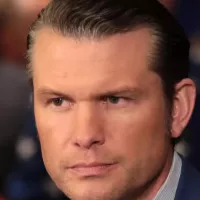
Pete Hegseth is an American author former television personality and...
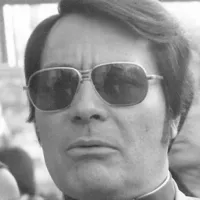
Jim Jones was an American cult leader who founded the...
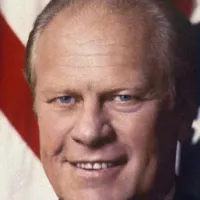
Gerald Ford the th U S President served from -...
Trending
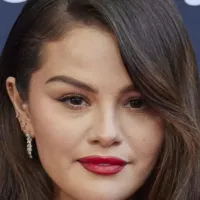
45 minutes ago Selena Gomez's Spiced-Plum Manicure and TikTok Clone Theory Spark Buzz
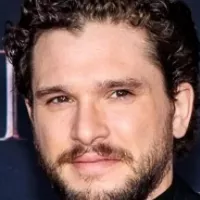
45 minutes ago Kit Harington and Sophie Turner Gag After On-Screen Kiss in New Movie

45 minutes ago Trump administration updates, Iran nuclear efforts, and White House controversies unfold.
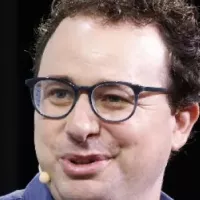
45 minutes ago Dario Amodei Highlights India's Central Role in Shaping AI's Future at AI Summit.
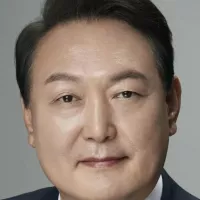
2 hours ago Yoon Suk Yeol, South Korean ex-president, receives life sentence for insurrection and martial law.

4 hours ago Maya Hawke and Christian Lee Hutson celebrated wedding with Stranger Things cast present.
Popular

Jesse Jackson is an American civil rights activist politician and...
Randall Adam Fine is an American politician a Republican who...

Pam Bondi is an American attorney lobbyist and politician currently...

Barack Obama the th U S President - was the...

Martin Luther King Jr was a pivotal leader in the...

Ken Paxton is an American politician and lawyer serving as...